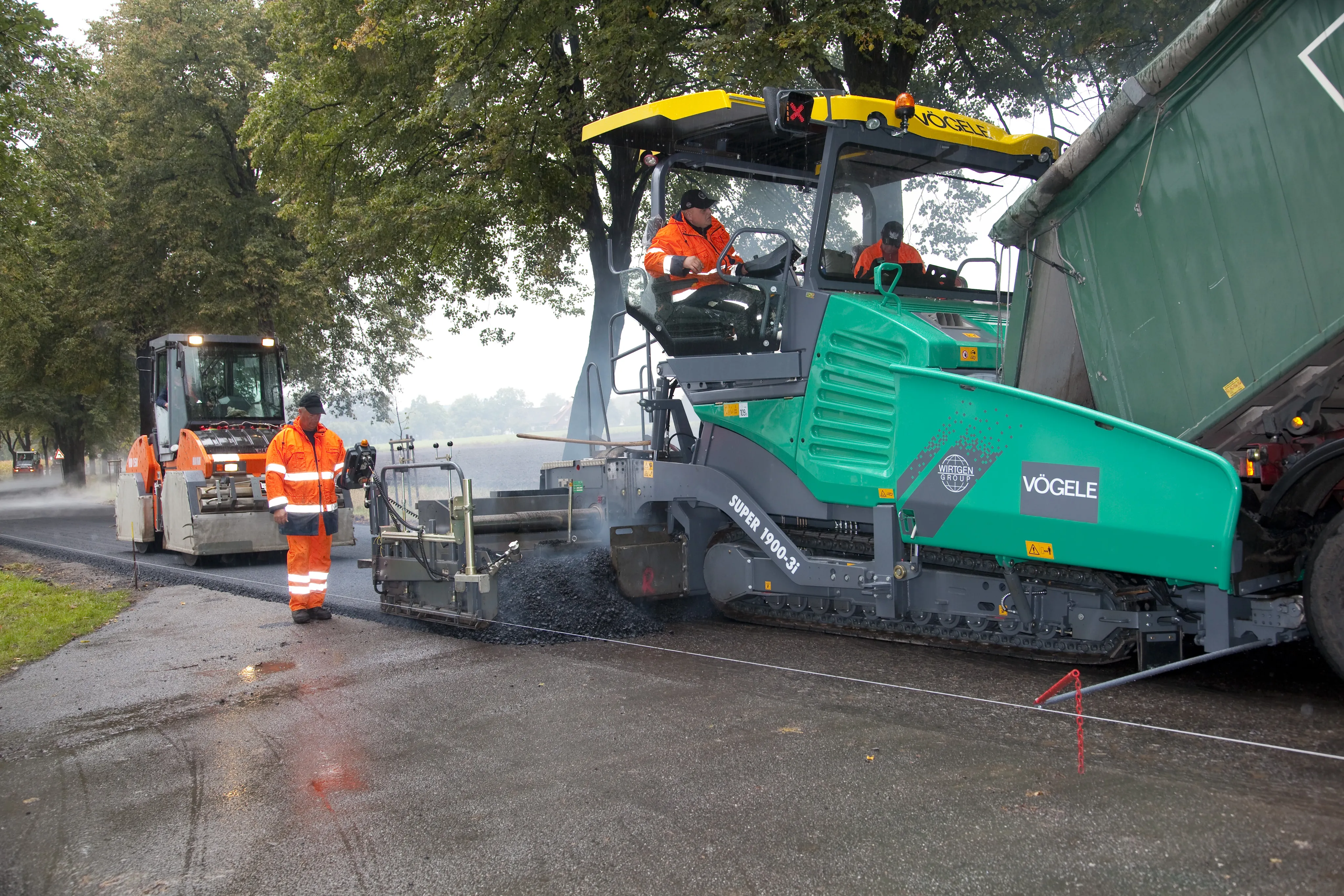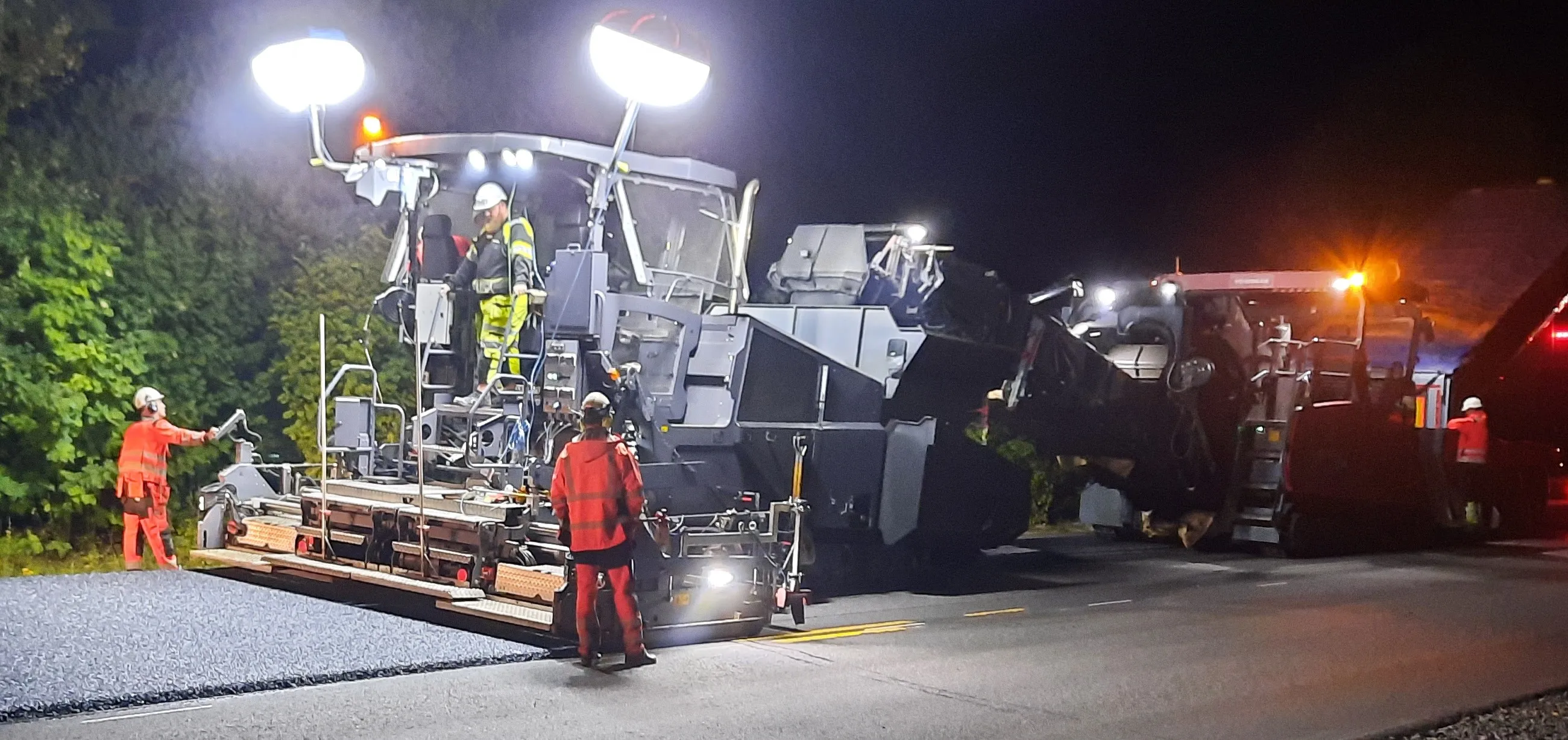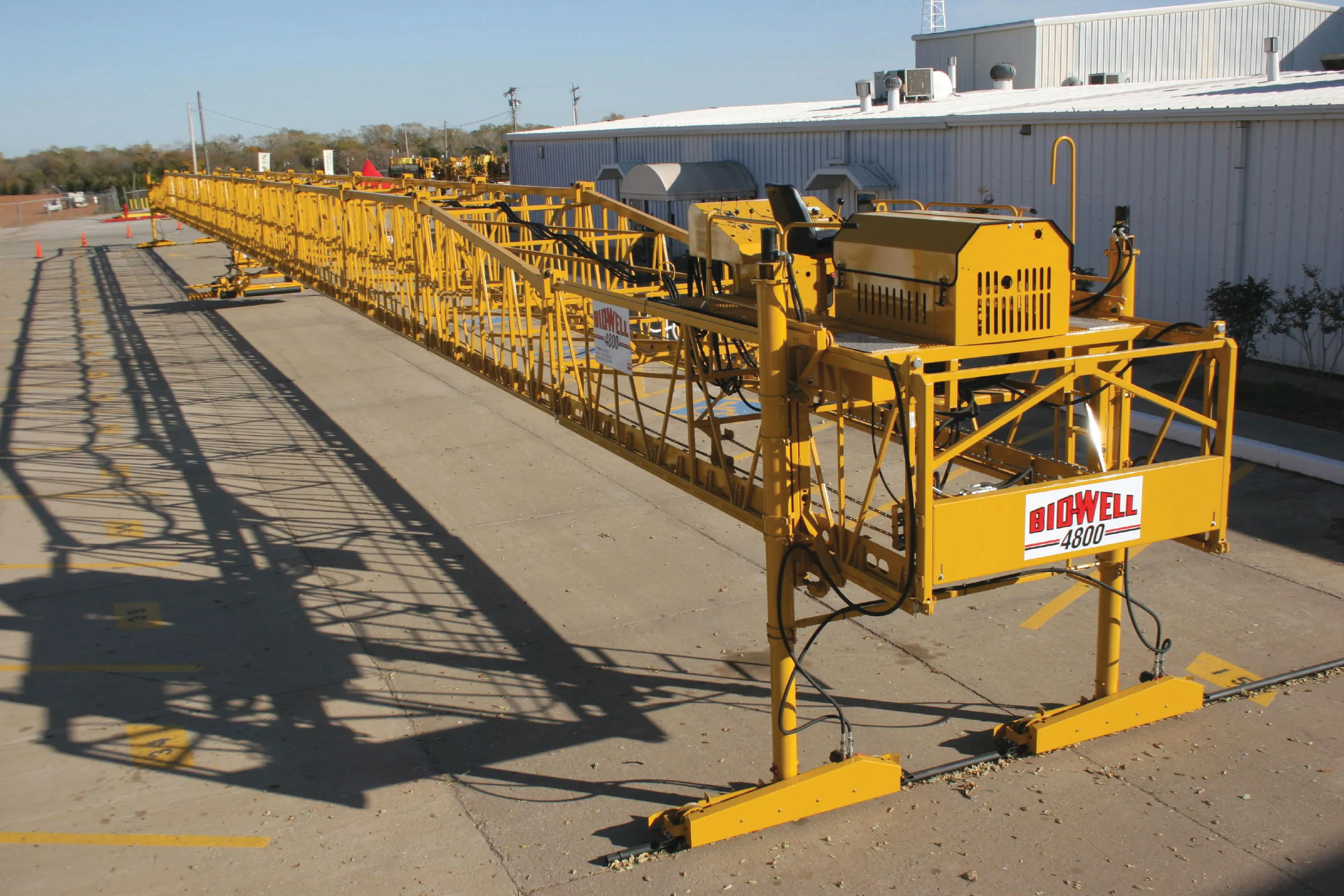From Vögele comes a new range of pavers in the shape of its latest generation machines, which are said to offer higher performance productivity and finish quality, along with lower emissions and running costs. The new machines being offered are the 1900-3, 1300-3 and 1100-3 tracked pavers, as well as the 1303-3 and 1103-3 wheeled pavers and these come in addition to the existing 2100-3, with the 1600-3 and 1800-3 also due shortly.
February 13, 2013
Read time: 4 mins

From 1194 Vögele comes a new range of pavers in the shape of its latest generation machines, which are said to offer higher performance productivity and finish quality, along with lower emissions and running costs. The new machines being offered are the 1900-3, 1300-3 and 1100-3 tracked pavers, as well as the 1303-3 and 1103-3 wheeled pavers and these come in addition to the existing 2100-3, with the 1600-3 and 1800-3 also due shortly. The EcoPlus system is an emissions-reducing package that benefits from the latest engine technology and exhaust after-treatment. Customers can opt for the Tier 3/Stage IIIA compliant dash 3 machines or the dash3i pavers that meet the latest US, European and Japanese standards, which allows the firm to offer the latest paving technology both in developed western markets and in developing nations.
A number of features help reduce fuel consumption. When the paver is waiting, its hydraulic pumps for traction, conveyors and augers as well as the screed compaction systems will automatically disengaged after one minute.
Reducing drag also makes it easier to start the paver at low outside temperatures. The tamper is driven by a variable displacement pump which delivers only the amount of oil needed for the current tamper speed, improving efficiency. The variable-speed fan is driven by a viscous coupling that adjusts in line with engine load and ambient temperature, as well as the temperature of the oil and cooling water, further improving efficiency and also cutting noise. A bypass circuit allows the hydraulic oil to reach optimum operating temperature quickly, reducing fuel consumption and if the oil temperature rises above the optimum level of 50–70°C, a bypass diverts the oil through the cooler assembly. The improved fuel efficiency is an important point that will lower running costs. According to marketing director Roland Schug, “The machines offer fuel consumption savings of up to 25%, which can save €7,000-12,000 on fuel/year for the average customer.”
The machines are equipped with the novel PaveDock Assistant system first seen on the 2100-3 paver introduced in 2012. This allows communications between the paver operator and the driver of the feed vehicle and ensures that the mix is supplied to the paver safely and without jolts. Signal lights on the paver and the associated controls on the paver operator's ErgoPlus 3 console are key components of the PaveDock communication system. The paver has two highly visible signal lights mounted on the right and left of the hardtop and can tell the feed machine operator whether it is necessary to reverse or stop for example. In addition, Vögele also fits the innovative PaveDock push-rollers as option, a robust system that absorbs impacts when the feed vehicle docks onto the paver. A sensor installed in the sprung push-rollers sends a signal to the PaveDock Assistant whenever a feed vehicle has docked onto the paver, while the signal lights automatically display a stop symbol and the driver of the feed vehicle can react.
The novel ErgoPlus operating system has been further improved with additional features for the new dash 3 generation. The redesigned four-colour display has a high-contrast user interface for readability in poor lighting conditions, with self-explanatory symbols understood in all languages. In addition, the driver's seat and the paver operator's console on the operator platform, as well as the screed consoles can be adjusted as required.
The advanced AutoSet function allows the operator to move the paver quickly from one area to another and reduces the risk of damage to the deflectors or augers. This raises the screed, augers and hopper front for travel and when the machine is at the point where paving is to restart, selecting a control allows the screed, hopper and auger to return to the pre-set working positions.
In addition to upgrading the tractor units, Vögele has also impoved its screed technology with new AB500 and AB600 telescopic screeds for paving widths of 2-9m. These versatile units can suit a range of applications and offer the high pre-compaction performance of earlier models, combined with high surface finish.
A number of features help reduce fuel consumption. When the paver is waiting, its hydraulic pumps for traction, conveyors and augers as well as the screed compaction systems will automatically disengaged after one minute.
Reducing drag also makes it easier to start the paver at low outside temperatures. The tamper is driven by a variable displacement pump which delivers only the amount of oil needed for the current tamper speed, improving efficiency. The variable-speed fan is driven by a viscous coupling that adjusts in line with engine load and ambient temperature, as well as the temperature of the oil and cooling water, further improving efficiency and also cutting noise. A bypass circuit allows the hydraulic oil to reach optimum operating temperature quickly, reducing fuel consumption and if the oil temperature rises above the optimum level of 50–70°C, a bypass diverts the oil through the cooler assembly. The improved fuel efficiency is an important point that will lower running costs. According to marketing director Roland Schug, “The machines offer fuel consumption savings of up to 25%, which can save €7,000-12,000 on fuel/year for the average customer.”
The machines are equipped with the novel PaveDock Assistant system first seen on the 2100-3 paver introduced in 2012. This allows communications between the paver operator and the driver of the feed vehicle and ensures that the mix is supplied to the paver safely and without jolts. Signal lights on the paver and the associated controls on the paver operator's ErgoPlus 3 console are key components of the PaveDock communication system. The paver has two highly visible signal lights mounted on the right and left of the hardtop and can tell the feed machine operator whether it is necessary to reverse or stop for example. In addition, Vögele also fits the innovative PaveDock push-rollers as option, a robust system that absorbs impacts when the feed vehicle docks onto the paver. A sensor installed in the sprung push-rollers sends a signal to the PaveDock Assistant whenever a feed vehicle has docked onto the paver, while the signal lights automatically display a stop symbol and the driver of the feed vehicle can react.
The novel ErgoPlus operating system has been further improved with additional features for the new dash 3 generation. The redesigned four-colour display has a high-contrast user interface for readability in poor lighting conditions, with self-explanatory symbols understood in all languages. In addition, the driver's seat and the paver operator's console on the operator platform, as well as the screed consoles can be adjusted as required.
The advanced AutoSet function allows the operator to move the paver quickly from one area to another and reduces the risk of damage to the deflectors or augers. This raises the screed, augers and hopper front for travel and when the machine is at the point where paving is to restart, selecting a control allows the screed, hopper and auger to return to the pre-set working positions.
In addition to upgrading the tractor units, Vögele has also impoved its screed technology with new AB500 and AB600 telescopic screeds for paving widths of 2-9m. These versatile units can suit a range of applications and offer the high pre-compaction performance of earlier models, combined with high surface finish.
Stand: F10.1011/1012
%$Linker:









